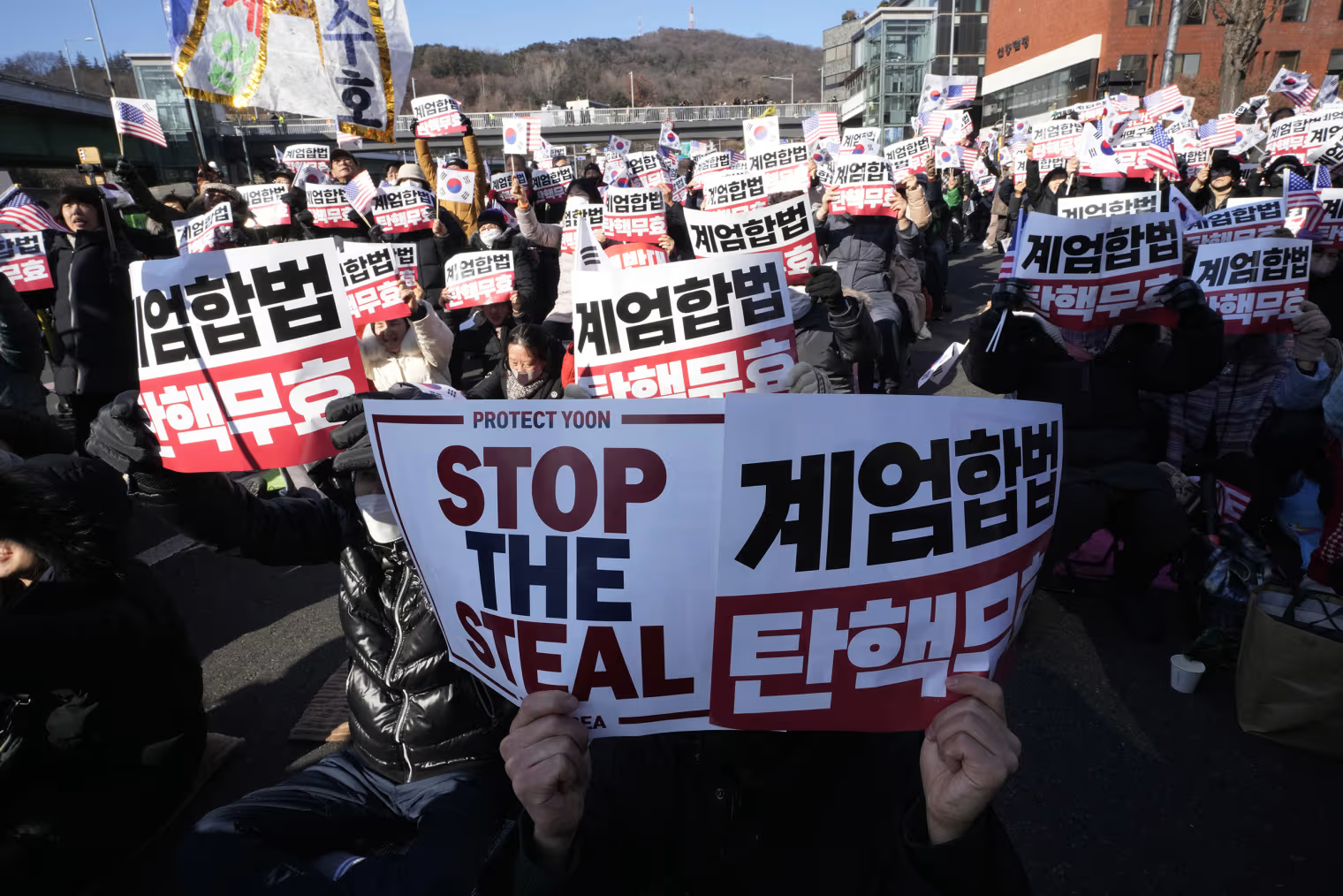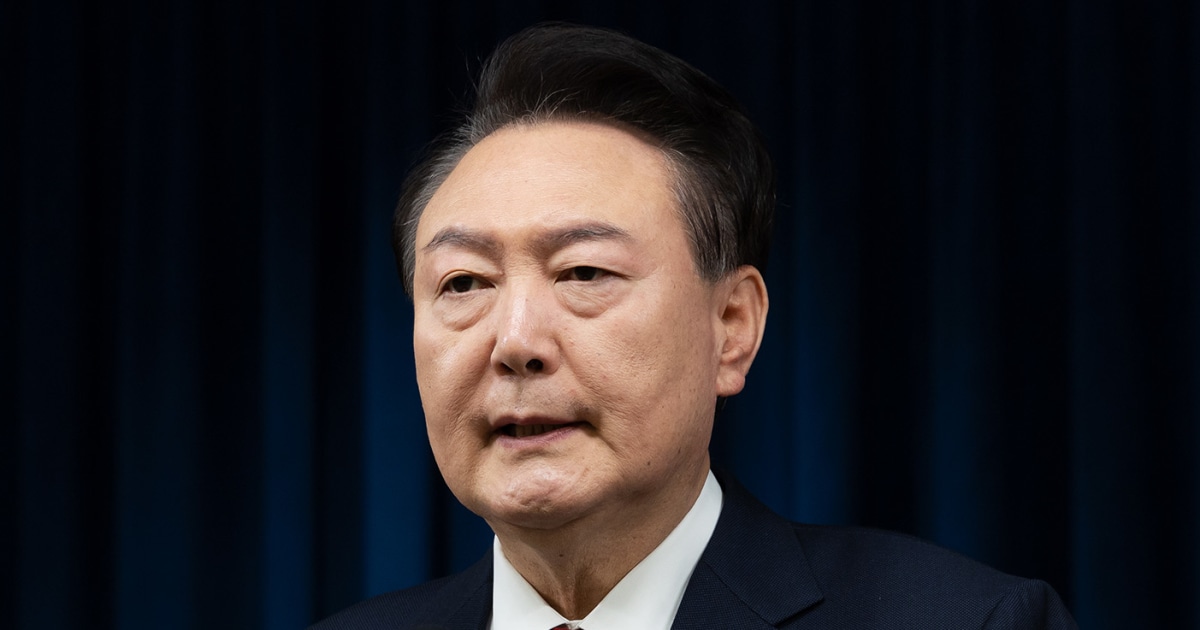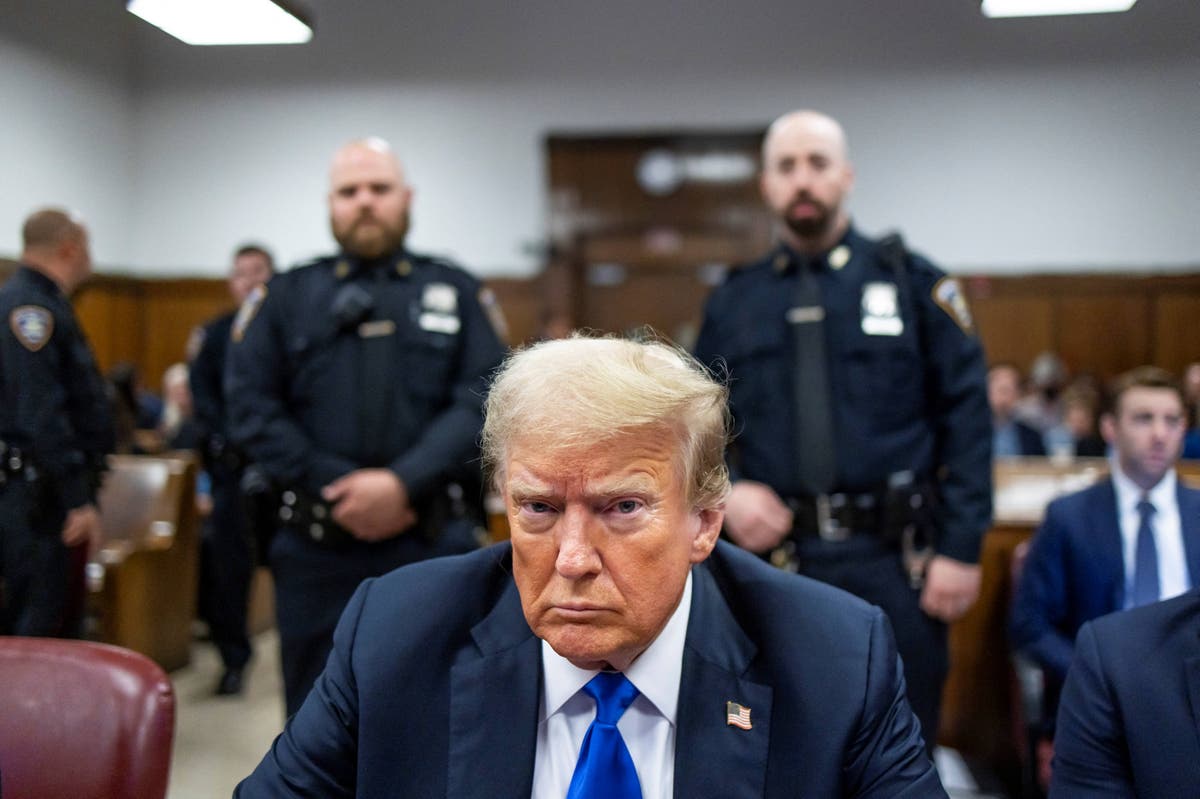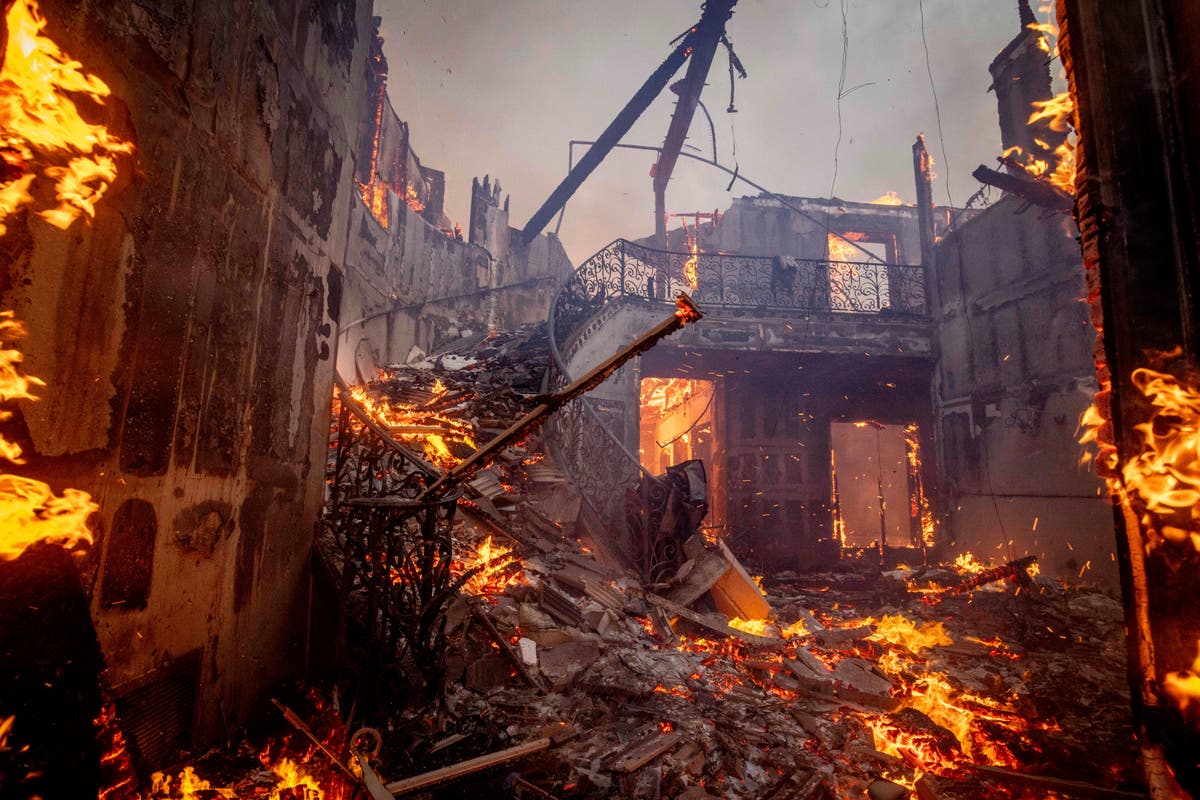Seoul, South Korea – South Korean authorities have initiated an unprecedented move to arrest President Yoon Suk Yeol following his impeachment and a controversial attempt to impose martial law. The situation has escalated into a tense standoff at the presidential residence.
The execution of the arrest warrant comes after President Yoon's impeachment on December 14th, related to his short-lived declaration of martial law. Police investigators, arriving at the presidential residence early Friday, faced resistance from Yoon's security detail, which had previously blocked searches of the premises.
Adding to the complexity, a crowd of conservative supporters gathered outside, attempting to form a human shield to prevent the arrest. Some of these supporters displayed American flags, expressing backing for the U.S.-South Korea alliance.
Despite the initial obstruction, authorities served the arrest warrant to the presidential security chief after a tense two-hour standoff. The Presidential Security Service, however, maintains it is legally obligated to protect the president, including against any warrant executions on the premises.

This action marks a significant point in South Korean history. While not the first president to be impeached, President Yoon is the first sitting president to face arrest. He has been suspended from his duties since his impeachment and now faces possible insurrection charges.
The investigation, led by the Corruption Investigation Office for High-ranking Officials, began a month to the day after Yoon's controversial martial law declaration, which was rejected by lawmakers within hours. Investigators moved into the compound without resistance despite initial obstructions outside.
President Yoon's legal team is contesting the legality of the arrest warrant, arguing that the Corruption Investigation Office lacks the authority to direct police actions. They have stated that legal proceedings challenging the warrant are underway.
The warrant is part of a broader inquiry into whether President Yoon should be charged with insurrection, a crime for which South Korean presidents do not have immunity. Officials have until Monday to execute the warrant.
President Yoon's attempts to advance his legislative agenda have been hampered by an opposition-controlled parliament. His surprise declaration of martial law in December, citing "anti-state forces," further destabilized the situation, despite his subsequent apology.
The martial law incident has deeply impacted South Korea. The country has a history of military-authoritarian rule but has since become a vibrant democracy, and this event has raised concerns about a potential return to those times.
Despite a significant drop in his approval ratings following these events, President Yoon retains a base of support, with hundreds demonstrating outside the presidential residence in recent days. Some are echoing the sentiments of former US President Donald Trump, with some even adopting "Stop the Steal" slogans, claiming the impeachment to be illegitimate.
In a late-night letter to his supporters, President Yoon expressed his gratitude for their support and emphasized his commitment to protecting the nation from "anti-state forces." The opposition Democratic Party has criticized the president’s message as “highly inappropriate,” accusing him of inciting conflict and chaos among his supporters.
The impeachment process against Yoon followed a first failed attempt after lawmakers from Yoon's People Power Party boycotted the vote. However, 12 PPP lawmakers voted in favor of the second impeachment motion, and Yoon now faces a Constitutional Court trial within 180 days to determine his fate.
Adding further complexity to the political situation, Prime Minister Han Duck-soo was also impeached after serving less than two weeks as the acting president and was succeeded by Choi Sang-mok, the former deputy prime minister. The country was also dealing with a major aviation disaster, with a plane crash in the southwest city of Muan, which killed 179 of the 181 people on board.
The situation is evolving rapidly as South Korea navigates an unprecedented political crisis.







